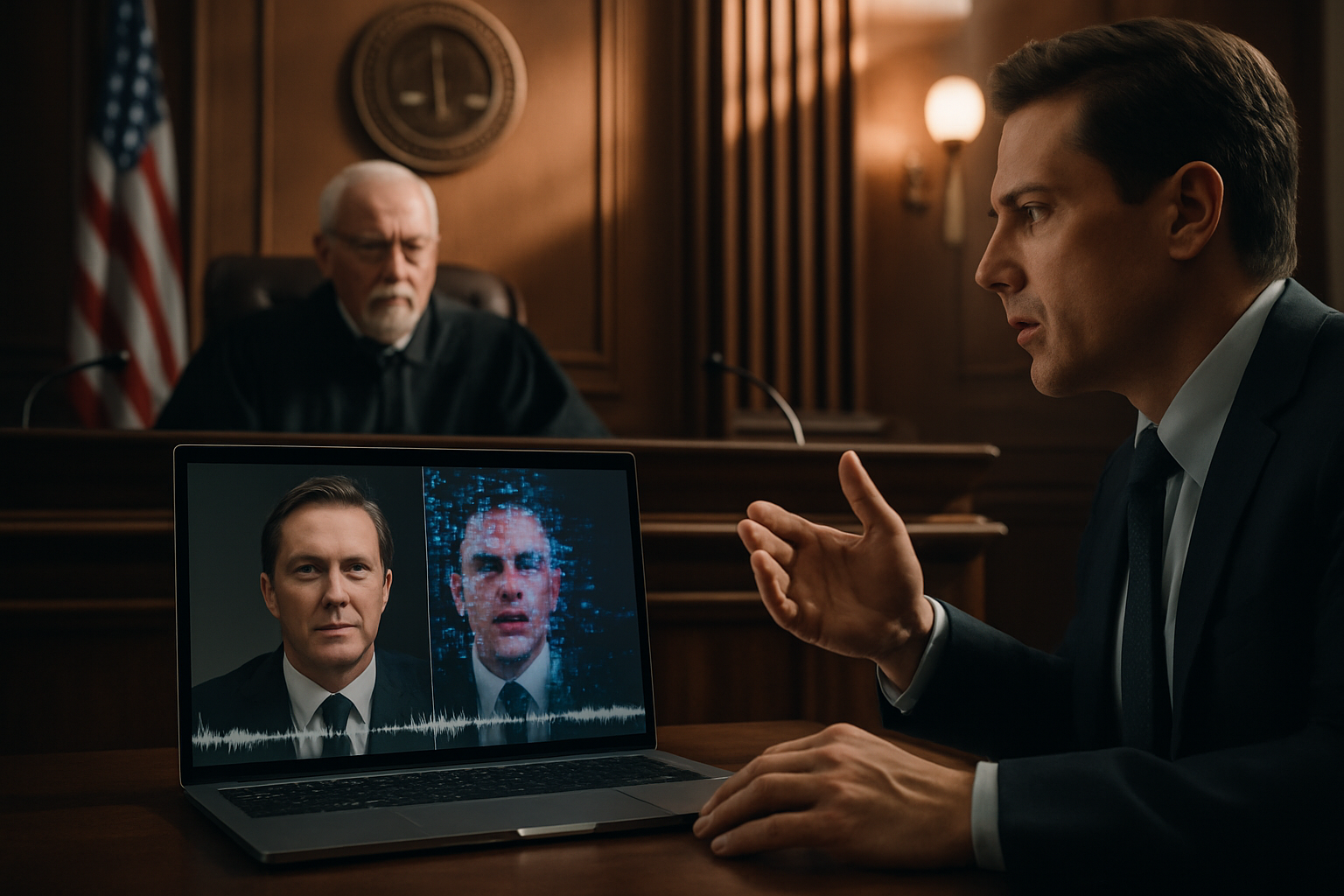Legal Implications of AI-Generated Evidence in Courts
The intersection of artificial intelligence and the justice system has given rise to a groundbreaking development: AI-generated evidence. As courtrooms grapple with this technological advancement, legal professionals, judges, and policymakers face unprecedented challenges in determining the admissibility, reliability, and impact of such evidence on trial outcomes.

Historical Context and Legal Precedents
The use of technology-assisted evidence in courtrooms is not entirely new. From fingerprint analysis to DNA testing, scientific advancements have long played a crucial role in the justice system. However, AI-generated evidence represents a quantum leap in complexity and sophistication. To understand its potential impact, it’s essential to examine past legal precedents regarding the admissibility of scientific evidence, such as the Daubert standard in the United States, which established criteria for evaluating the reliability of expert testimony.
Current Legal Landscape
As AI-generated evidence becomes more prevalent, jurisdictions worldwide are grappling with how to integrate it into existing legal frameworks. Some countries have begun to develop guidelines for the use of AI in legal proceedings, while others are still in the early stages of addressing this issue. In the United States, for instance, the Federal Rules of Evidence provide a general framework for admitting scientific evidence, but their application to AI-generated materials remains a subject of intense debate among legal scholars and practitioners.
Challenges in Admissibility and Reliability
One of the primary concerns surrounding AI-generated evidence is its admissibility in court. Judges must determine whether such evidence meets the standards of relevance, reliability, and fairness. This evaluation process is complicated by the complex nature of AI algorithms, which may be difficult for non-experts to understand fully. Additionally, concerns about potential biases in AI systems and the inability to cross-examine an algorithm pose significant challenges to the traditional adversarial system.
Implications for Due Process and Fair Trials
The introduction of AI-generated evidence raises important questions about due process and the right to a fair trial. Defendants and their attorneys may face difficulties in challenging or refuting evidence produced by sophisticated AI systems, potentially compromising their ability to mount an effective defense. Moreover, the perceived infallibility of AI-generated evidence could unduly influence juries, leading to potential miscarriages of justice.
Ethical Considerations and Transparency
As courts grapple with AI-generated evidence, ethical considerations come to the forefront. Issues of transparency and explainability in AI systems are paramount, as the inner workings of these algorithms often remain opaque. Legal professionals and judges must navigate the delicate balance between leveraging technological advancements and ensuring that justice is served in a fair and transparent manner.
The Role of Expert Witnesses
The complexity of AI-generated evidence necessitates a new breed of expert witnesses who can explain and interpret these technological outputs to judges and juries. This development raises questions about the qualifications and credibility of such experts, as well as the potential for conflicting interpretations of AI-generated evidence. Courts will need to establish clear guidelines for qualifying and evaluating the testimony of AI experts.
Legislative and Policy Responses
As the legal system adapts to the reality of AI-generated evidence, legislators and policymakers face the challenge of crafting appropriate regulations and guidelines. Some jurisdictions have begun to explore the creation of specialized courts or panels to handle cases involving complex technological evidence. Others are considering mandatory disclosure requirements for the algorithms and data used to generate AI evidence, aiming to ensure transparency and fairness in the legal process.
The Future of AI in the Courtroom
Looking ahead, the integration of AI-generated evidence in legal proceedings is likely to continue evolving. As AI technology advances, we may see the development of more sophisticated tools for evidence analysis and presentation. This progression could lead to more accurate fact-finding and decision-making in courts, but it also raises important questions about the role of human judgment in the legal system and the potential for over-reliance on technology.
In conclusion, the emergence of AI-generated evidence presents both opportunities and challenges for the legal system. As courts, legislators, and legal professionals grapple with this technological advancement, it is crucial to strike a balance between innovation and the fundamental principles of justice. The coming years will undoubtedly see significant developments in this area, shaping the future of legal proceedings and the pursuit of truth in courtrooms around the world.




